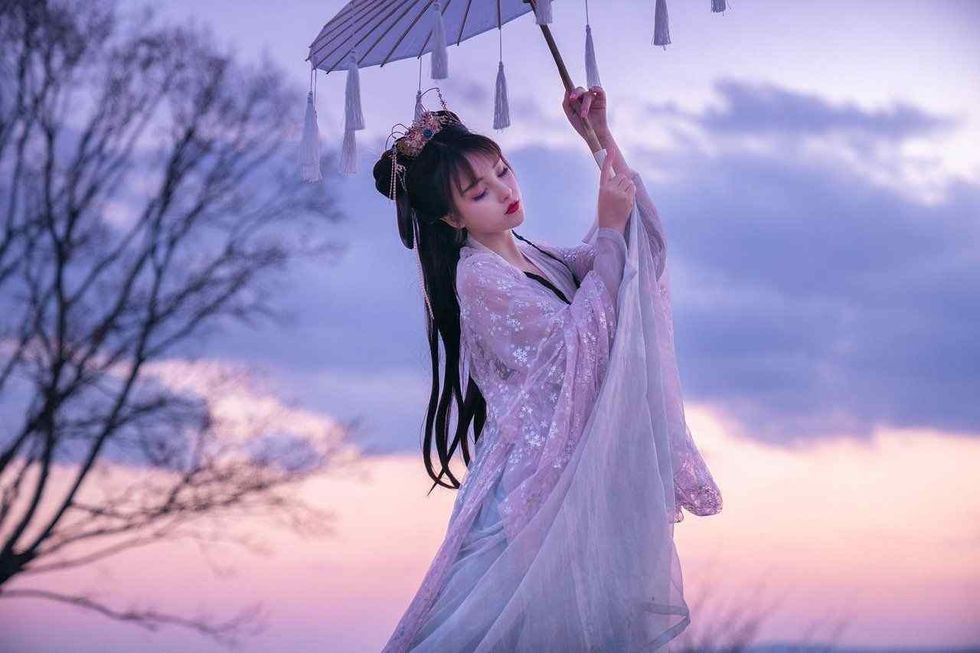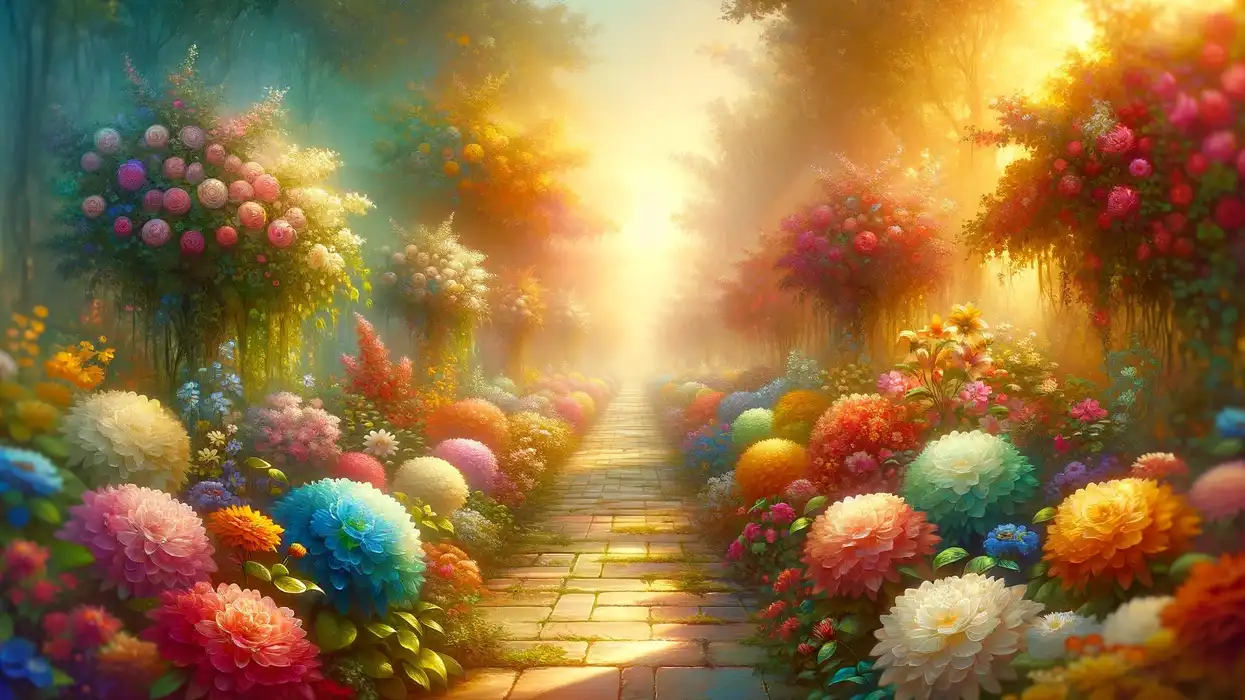Japanese girl names meaning death have a captivating charm that goes beyond reality and sparks the fires of creativity and imagination. These names have a deep cultural and spiritual meaning, making them ideal for memorable fictional characters in movies and stories. They are also great for naming abstract things like art pieces or vehicles.
In Japanese culture, names hold significant meaning, representing the deep connection between life and death and the continuous interplay between them. Explore these Japanese names that capture the spirit of death, inspired by ancient myths and timeless stories.
With a touch of imagination, you can explore the world of death gods in mythology and the narratives found in Japanese literature. From captivating stories to unforgettable legends, each name carries the spirit of life's moments and the narrative of what happens after life ends.
Top Japanese Names That Mean Death For Girls

In Japanese culture and tradition, certain names hold deep meaning when it comes to the concept of death. These names provide insight into how the Japanese language refers to the end of life and the cultural context of the afterlife.
1. Kage: means 'shadow'.
2. Kurai: means 'dark' or 'gloomy'.
3. Kuro: means 'black'.
4. Mayonaka: means 'midnight'.
5. Miira: means 'preserved corpse' or 'mummy'.
6. Mikazuki: means 'crescent moon'.
7. Shinigami: means 'death god', a spirit that invites humans towards death.
8. Shizuka: means 'quiet'.
9. Sumi: means 'black ink'.
10. Yoru: means 'night'.
Unique Japanese Girl Names That Embody The Essence Of Death
Exploring the richness of Japanese culture and language, you will discover unique names that beautifully reflect the deep and broad idea of death. These names capture the delicate balance between life and death, reflecting the continuous cycle of existence.
11. Amatsu-Mikaboshi: means 'August Star of Heaven'.
12. Amaya: means 'night rain'.
13. Chiyo: means 'eternal'.
14. Enma: means 'judge of the dead' or 'king of hell'.
15. Izanami: is believed to be the goddess of creation and death in Japanese mythology.
16. Kagai: means 'evil'.
17. Kanashimi: means 'grief'.
18. Kuromi: means 'to see black'.
19. Obon: means 'festival of the dead'.
20. Rei: means 'spirit'.
21. Shizuka: means 'quiet'.
22. Sogi: means 'ancestor'.
23. Tamashii: means 'soul'.
24. Tomurai: means 'mourning'.
25. Yurei: means 'ghost'.
Ancient Japanese Names Tied To Death Gods And Spirits
 Shutterstock
ShutterstockAncient Japanese names that find their roots in tales of death gods and spirits are rich in history and myth. These names, frequently featured in Japanese folklore, highlight the deep respect that Japanese society has for the spiritual world.
26. Datsue-ba: meaning 'old woman who strips clothes', is believed to be a sorceress who strips the dead of their worldly possessions as they cross to the afterlife.
27. Enma-Dai-Ō: means 'Great King Enma', the ruler of the underworld in Japanese Buddhism.
28. Gashadokuro: means 'starving skeleton'.
29. Hone-onna: means 'bone woman'.
30. Ikusagami: means 'white bird of heaven'.
31. Jigoku-Shoujo: means 'hell girl'.
32. Kasha: means 'fire chariot', a flaming wagon believed to carry away the souls of the wicked.
33. Kyōkotsu: means 'crazy bones'.
34. Mōryō: means 'evil spirits that rob graves and eat corpses'.
35. Nue: is a legendary chimeric creature with the head of a monkey, the body of a raccoon dog, the limbs of a tiger, and a serpent's tail. It is known for its mysterious cry and association with misfortune, illness, and death.
36. Onryō: means 'vengeful spirit', a ghost that seeks revenge for wrongs suffered in life.
37. Shikome: means 'ugly woman of the underworld', serving the goddess Izanami.
38. Yūrei: means 'faded soul'.
Japanese Girl Names With Dark Connotations
Reflecting the dark side of Japanese culture, some names are born of mythologies and legends where evil spirits reside. These Japanese names for girls are inspired by the mysteries of the night and shadowy tales, stirring up curiosity and a brave embrace of the unknown.
39. Akujo: means 'evil woman'.
40. Ankoku: means 'darkness'.
41. Chimamire: means 'bloodstained' or 'covered in blood'.
42. Gekido: means 'rage'.
43. Higure: means 'twilight' or 'dusk'.
44. Ikiryo: means 'living ghost', a spirit that leaves the body to haunt others.
45. Kurai: means 'dark'.
46. Kuroi: means 'black'.
47. Mayonaka: means 'midnight' or 'dead of night'.
48. Mononoke: means 'vengeful spirit' or 'angry ghost'.
49. Noroi: means 'curse'.
50. Onibaba: means 'female demon'.
51. Rei: means 'departed soul'.
52. Shikyo: means 'death'.
53. Shinen: means 'abyss'.
54. Shiryō: means 'souls of the dead'.
55. Tsumi: means 'sin'.
56. Yami: means 'darkness'.
57. Yoru: means 'night'.
Japanese Girl Names Inspired By Death Spirits And Themes
 Shutterstock
ShutterstockInspired by the mystical concept of a death spirit, certain Japanese names carry profound wisdom that acknowledges the brief nature of life. These names have a deep connection to the Japanese language, revealing the quiet state of death. They are a true reflection of a society that values and celebrates every aspect of life.
58. Amanojaku: means 'heavenly evil spirit', a demon-like creature in Japanese folklore.
59. Bake-neko: means 'cat demon'.
60. Goryo: means 'honorable spirit'.
61. Kanako: means 'child of the gods'.
62. Kiyohime: means 'pure princess', a woman believed to transform into a dragon-like, serpent demon.
63. Shizuka: means 'quiet'.
64. Ubume: refers to the ghost of a woman who died during childbirth.
65. Yomi: means 'underworld' or 'land of the dead'.
FAQs
What significance do Japanese names that mean death have?
Japanese names that mean death are not just about the end of life; they are deeply symbolic, often reflecting themes of rebirth, the natural cycle of life, and the beauty found in transient moments. They provide a new perspective on death, viewing it as a natural part of life's journey rather than an ultimate end.
How do Japanese people view death and the afterlife?
In Japanese culture, death is commonly seen as a natural aspect of life's cycle, with a strong emphasis on the spirits of ancestors and the eternal journey of the soul. The idea of an afterlife is not something to be afraid of, but rather something to be embraced as a transition to a different state of existence.
Can these names be used for a baby girl?
Giving a Japanese name that means death to a baby girl largely depends on the choice of the parents. However, parents should consider the deep meaning and cultural significance of any chosen name. Names are a lifelong gift to your little one, and you want to choose a name that means the qualities and characters you want their life to reflect.
Are these names common in Japan?
While certain names may have a more traditional or literary feel, others are more commonly used. People have different opinions about these names because they are usually selected for their meanings and cultural importance rather than how common they are.
Are names meaning death common in Japanese literature?
In Japanese literature, characters are often given symbolic names, sometimes with associations with death, adding depth to the storytelling. Choosing the right names for characters can bring a story to life. The names can help convey the character's role or destiny, adding detail to the narrative and reflecting the cultural significance within the story's arc.
Why choose a Japanese girl name meaning death for a fictional character?
Opting for a Japanese girl name that means death for a fictional character can bring an added level of complexity and richness to your story. These names are often filled with deep cultural and philosophical meanings, representing ideas about life, death, and the brief nature of existence.
They can bring your characters to life with rich backstories, mysterious powers, and destiny intertwined with the cycle of life and death, leaving a lasting impression on the audience.
How can a name meaning death influence the storyline or character development?
The choice of a name associated with death can significantly impact a character's growth and the overall narrative, establishing an atmosphere of seriousness, mystery, or anticipation right from the beginning. It can mold the character's identity, motivations, and interactions with others, leading to cool plot developments and conflicts.
A name can represent the character's state, challenges, or ultimate transformation, acting as a constant reminder of their connection to the underlying themes in the story.
Are these names suitable for characters in any genre of fiction?
Indeed, Japanese girl names with dark meanings can be fitting for characters in a wide range of genres, including fantasy, horror, romance, and science fiction. These names can add a beautiful touch to a character's magical or supernatural attributes in fantasy settings.
Irrespective of the genre, these names can bring about a feeling of depth and make you think about life, giving the character a special quality.
Can these names be used for more than just human characters?
Definitely. These names are perfect for adding a touch of magic to your stories, whether they're about spirits, gods, or mythical creatures. They can also be given to objects that possess consciousness, mysterious locations, influences, or ideas, transforming them into personified characters. Choosing a name that carries a sense of mystery and value can add richness to your creative project.
How do you respectfully and appropriately use Japanese names meaning death?
Before you use a Japanese name that means death, research and understand the cultural context and significance associated with the name. Explore the roots, past, and complexities of the name and make sure it fits well with the character's personality, story, and ideas that interest you.
You may also consult cultural experts to ensure that your use of the name is respectful and adds depth to your story.
These Japanese girl names draw inspiration from spiritual beings, supernatural figures, and elements that explore the cycle of life and the beauty of mortality. Some names in Japanese culture refer to spirits or mythical beings, while others symbolize death or immortality.
Although these names draw inspiration from death-related themes, they may not be widely used as actual given names in modern Japan. However, they make a perfect match for your fictional characters in stories and movies, as well as abstract objects such as cars and artwork.
Related Articles Around the Web





 Shutterstock
Shutterstock Shutterstock
Shutterstock





